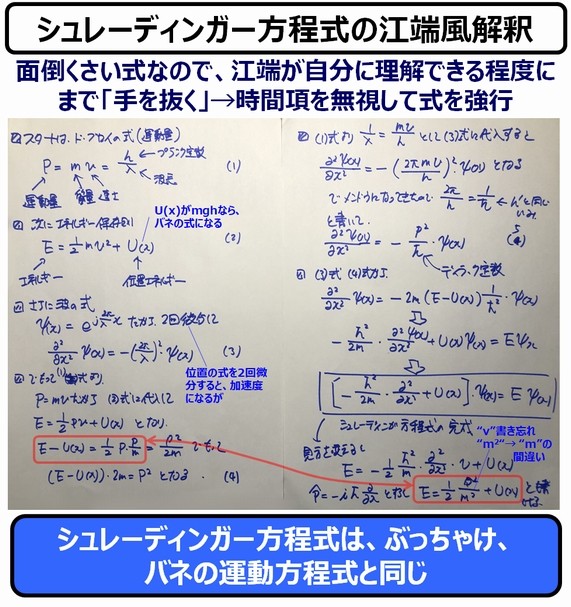2023-11-01 Isn't it impressive that we can express the quadrature operations of multiple trigonometric functions with different phases and frequencies using only "i" expressions? Not? No-no. [長年日記]
I skipped the first 3/4 of the NHK program "Mathematics without Laughter: Imaginary Numbers" and watched it from the point where imaginary numbers are explained.
'Hmmm, I am afraid that's the explanation after all.'
I was a little disappointed.
No, of course, it is "very good" as a program.
However, I think it may be a bit harsh to offer the "Schrodinger equation" as an explanation of how imaginary numbers have entered our lives.
For example, if I were to ask myself if I could get my daughters or my wife to understand the Schrodinger equation using the following board, I would think, 'Well, that would be impossible.

It seems futile to say, "It's just like the equation of motion for a spring."
-----
I wonder if it could be explained in terms of 'imaginary numbers are a handy tool.
Isn't it impressive that we can express the quadrature operations of multiple trigonometric functions with different phases and frequencies using only "i" expressions?
Not? No-no.
I use it crudely to say, "Whenever I am at a loss for a calculation, I just try to apply them to Euler's formula.
-----
My recommendation is "An imaginary number is a 90-degree rotation," described here.
And so, the second half of this description (the conversation with the second daughter) is an example of the appearance of imaginary numbers in the real world.
-----
I hope that "imaginary numbers are a useful tool to be used and put to good use" will become widespread.
However, since our country is so irregular in devising the "no trigonometric function needed" theory, I feel that it will not work for the next 100 years (or even 100 years from now).